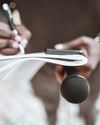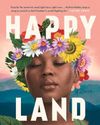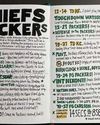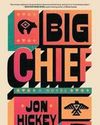The Way We Were

When I was a young lad working an office job in Manhattan long ago, in a more civilized age, I used to spend my lunch hours at used bookstores all over the city.1 Most of these stores offered old paperbacks for ridiculously low prices—a quarter each, in some cases. I would routinely pick up 20 books for five bucks and add them to my overflowing library. I'm still working through those books today, decades later—I bought a lot of old paperbacks that way. Why not! They were basically free.²
Those old paperbacks were of mixed quality, but they offered an opportunity I didn’t appreciate immediately: The chance to travel back in time a bit. Digging into those old books offered a break from the bestseller lists and the constant focus on what was new, to experience examples of writing from other time periods—they were lessons about what life was like decades or even centuries ago.
The first time I was conscious of learning something about everyday life from an old book involved Dorothy L. Sayers’ classic mystery Whose Body?, featuring her aristocratic detective Lord Peter Wimsey.^3 Published in 1923, the story could be updated to the modern day pretty easily, except for one detail: The way everyone treats telephones. Phones weren't brand-new in 1923, but newspapers were still publishing articles chronicling the astonishing growth of phone networks, and phone calls were expensive and complex, especially long-distance calls. In the novel, not only does Lord Wimsey keep his phone in a special room, but making a long-distance “trunk-call” is a notable activity, and one that involves politely asking someone to make the connection and ring you back when they have your party on the line.^4
この記事は Writer’s Digest の May/June 2025 版に掲載されています。
7 日間の Magzter GOLD 無料トライアルを開始して、何千もの厳選されたプレミアム ストーリー、9,500 以上の雑誌や新聞にアクセスしてください。
すでに購読者です ? サインイン
この記事は Writer’s Digest の May/June 2025 版に掲載されています。
7 日間の Magzter GOLD 無料トライアルを開始して、何千もの厳選されたプレミアム ストーリー、9,500 以上の雑誌や新聞にアクセスしてください。
すでに購読者です? サインイン

Endless Fields
THE CHALLENGE: Write a drabble—a short story of exactly 100 words—based on the photo prompt below.

Use the Tools of Journalism to Sharpen Your Research Skills
I started college in an art conservatory, but after a string of straight Cs, quickly learned that life wasn't for me. In search of a new calling, I decided I wanted to write novels. But instead of creative writing, I switched my major to journalism.

Literary Legacy
The next generation of authors stepping into the worlds of Tom Clancy, Robert Ludlum, and Vince Flynn share what it takes to write estate novels.

"Any Resemblance to Real Events ..."
Whether hot off the presses or on the shelves for years, a good book is worth talking about.

Laurie Halse Anderson
Laurie Halse Anderson's newest book didn't start as a middle-grade novel, though that's what it would eventually become.

Comp Authors: Building a True Platform That Actually Sells Books
What are authors like you doing to connect with their audiences and communities? Don't agonize about “platform”—your literary role models already drew the map.

"See" Your Story Take Shape With Visual Note-taking
Creating a sketchnote can provide valuable insights as you brainstorm or organize your story.

The True Subject of Discovery
Whenever I visit the Lac du Flambeau Indian Reservation, I feel like an outsider, and I am in many ways. Yet I will always have an irrevocable connection to the place.

Working Through Personal Change With Personal Essay
For F.A. Battle, the grand-prize winner of the Writer's Digest 5th Annual Personal Essay Awards, writing “Ground Zero” was a way to work through a change within herself—or perhaps truer, to come to terms with who she always was.
